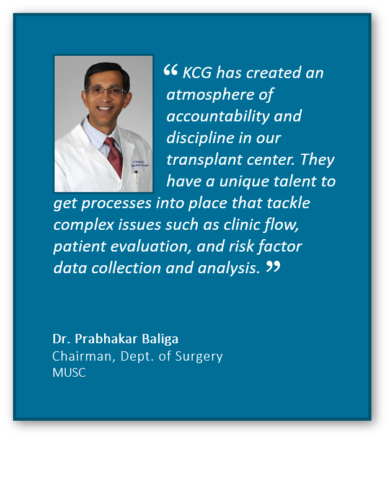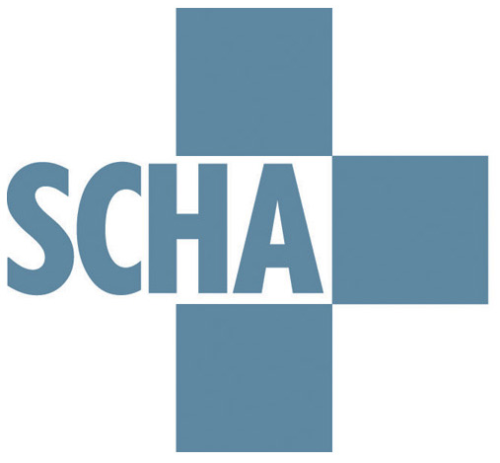Client Overview
Knowledge Capital Group’s client is a comprehensive organ transplant center, ranked among the top 20 U.S. programs by volume – transplanting nearly 300 patients annually. The transplant center employs over 70 non-physician clinical and support staff, and oversees all outpatient, inpatient and transplant specific clinical support teams. Even though the transplant center treats more than twice the national average of high-risk patients, the center’s clinical outcomes and organ transplant survival rates are among the highest in the nation for both adult and pediatric patient populations.
Problem Statement
In 2015, CMS and UNOS audits indicated lower than desired administrative scores. These may have resulted from:
- Compromised patient access in both pre- and post- clinic settings
- Minimal documented processes and under-utilization of technology
- Low staff and physician engagement scores despite good clinical outcomes
- Confusing and disjointed organizational structure with weak administrative leadership and low accountability
- Limited financial/operational reporting and understanding of Medicare Cost Report
Project Overview
The transplant center retained KCG to address staff engagement and organizational issues, including process and performance optimization. An initial review of processes and procedures identified deep rooted cultural dysfunction and non-compliance, with further workflow analysis uncovering extensive program inefficiency and a substantial backlog of pre-transplant patients. To mitigate these issues, KCG was named as the interim transplant center leadership team. In this capacity, KCG:
- Reorganized the structure of the transplant center organization to support new organ-specific goals
 Led the development of QAPI metrics and internal policies, driving strict adherence to UNOS/CMS regulations
Led the development of QAPI metrics and internal policies, driving strict adherence to UNOS/CMS regulations- Conducted human capital assessments; facilitated the counseling out of weak performers and elevated high-performers to key roles, so as to build competency and succession planning
- Completed end-to-end workflow documentation sessions to map both ‘as-is’ and ‘to-be’ processes, focused on making the transplant center efficient, effective and patient-centered
- Implemented and redeployed EMR to align people, processes and technology, and to enable robust reporting and accountability
- Engaged hospital analytics organization to develop key performance metrics and supportive operational reports
Impact
- Overall 10% growth in transplant volume and 15% margin growth
- New clinic-based workflows were created for physicians, surgeons and clinic staff, which increased patient access by nearly 40%
- Newly developed and implemented pre-kidney processes expedited a patient from the initial referral to an active listing within 60 days, eliminating nearly six months of non-value added time from previous workflow
- Press Ganey scores indicated engagement and commitment increased in both the physician and employee categories
- Cultural change resulted in organ teams functioning as a unit and supporting cross-organ workflows
- QAPI metrics and a full complement of policies were developed and effectively operationalized
- Accountability standards and role-based KPIs were developed and incorporated into annual review process
- Successful dual EMR (EPIC and VELOS) reimplementations enabled robust population and workflow management and employee-level accountability; further IT investment secured through commitment to implement EPIC’s Phoenix module in 2016
- Effective national searches for three key leadership positions – Director of Operations, Manager of Kidney Transplant and Transplant Administrator







